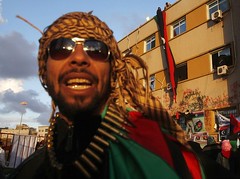Libyan Human Rights Activist Brutally Murdered | Salwa Bugaighis
/BENGHAZI, Libya -- The progress in Libya took a hit yesterday, 26 June, when Salwa Bugaighis was shot dead in her home. Bugaighis was a successful lawyer in Libya and she also was a prominent advocate for human rights. She was a vocal opponent of totalitarian rule of Muammar Gaddafi.
Since the ousting of Gaddafi, Bugaighis had played an important role in the process of political transition in Libya. She served on the National Transitional Council, which was an acting political body in Libya in the years after Gaddafi's rule. Bugaighis also oversaw a council to encourage national discussion and synergy. Essentially, Bugaighis was an important and powerful woman helping Libyans to discern their identity in the aftermath of the Gaddafi regime.
She is also credited with bringing greater democratic feelings to the transitional government, and also acting as a tireless advocate for the women of Libya.
The attack took place in the hours after Bugaighis casted her vote in the Libyan national election. After she voted, Bugaighis proudly posted images of her at the general election to social media. Seemingly, the assassination was an attempt to silence her political voice, as well as create a culture of fear in which other people will be afraid to champion human rights and political progress.
Also troubling, Bugaighis' husband has been missing since the assailants stormed the couple's home yesterday. According to reports, the activist's husband was at home with her when the invasion occurred.
Follow Michael on Twitter Twitter: @nahmias_report Contributing Editor: @MAndrewRansom
Related articles
Libya holds elections to end chaos (bbc.co.uk)
Libyan activists demand transparency from National Transitional Council (blacklistednews.com)
Benghazi attack suspect Ahmed Abu Khattala captured (khou.com)
Arab women fight to keep gains won on the street (guardian.co.uk)
UK could soon recognise Libya's rebel administration, opposition leaders say - The Guardian (news.google.com)




















